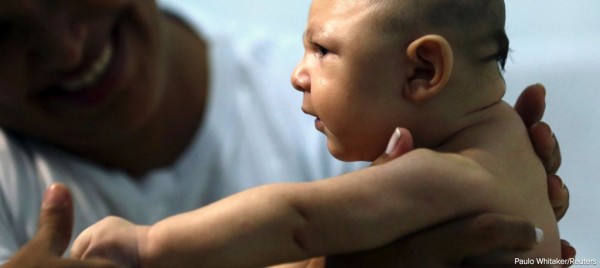Scientists in the United States have reportedly discovered two proteins in the Zika virus that are believed to be directly linked to the onset of microencephaly in newborns.
In the study published in the scientific journal Cell Stem Cell, researchers from the University of Southern California said that they have identified two specific proteins, dubbed NS4A and NS4B, in the Zika virus' makeup that trigger the disease, the Global Times reported.
Researchers have found out that the two proteins interfere with the functions of a cellular signaling pathway known as "Akt-mTOR," which eventually impairs proper cell development in the brain. The disruption of the pathway also triggers abnormal autophagy regulation, resulting in the virus propagating further and causing the brain to lose significant numbers of neurons.
Microencephaly is a medical condition characterized by abnormal brain development, resulting in a smaller than usual head. The condition's connection to Zika was suspected early in the latter's outbreak in 2015 but was only recently confirmed.
The team observed the action of the two proteins by examining three separate strains of Zika introduced in human neural stem cells.
According to Zhen Zhao, one of the study's co-authors and assistant professor at USC, their discovery will help in the prevention and treatment of microencephaly in babies born from Zika-infected mothers. However, Zhao said that they still have a long way to go to better understand the link between the two proteins and the disease.
He noted that not all infected pregnant mothers eventually give birth to babies with microencephaly.
However, microencephaly might not be the only thing that pregnant mothers have to worry about for their unborn children. Researchers at the Barao de Lucena Hospital in Recife, Brazil have discovered that fetuses carried by Zika-infected mothers might also be at risk for arthrogryposis, the Huffington Post reported.
Arthrogryposis is a condition resulting in the malformation of the joints, hindering normal flexion and extension. The disease was previously believed to be rare, affecting only one in every 3000 children. This is also the first time that it was linked to a maternal viral infection.
However, study leader Vanessa van der Linden noted that the sample size they used is relatively small. As such, more research is needed to be done to firmly establish the link, she added.


